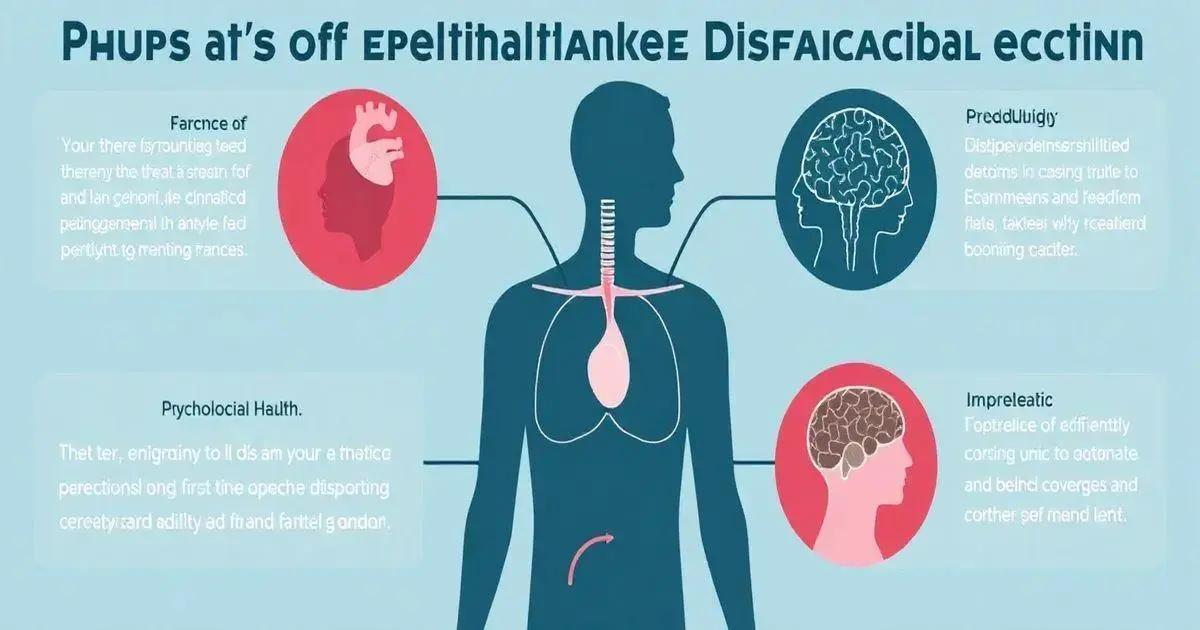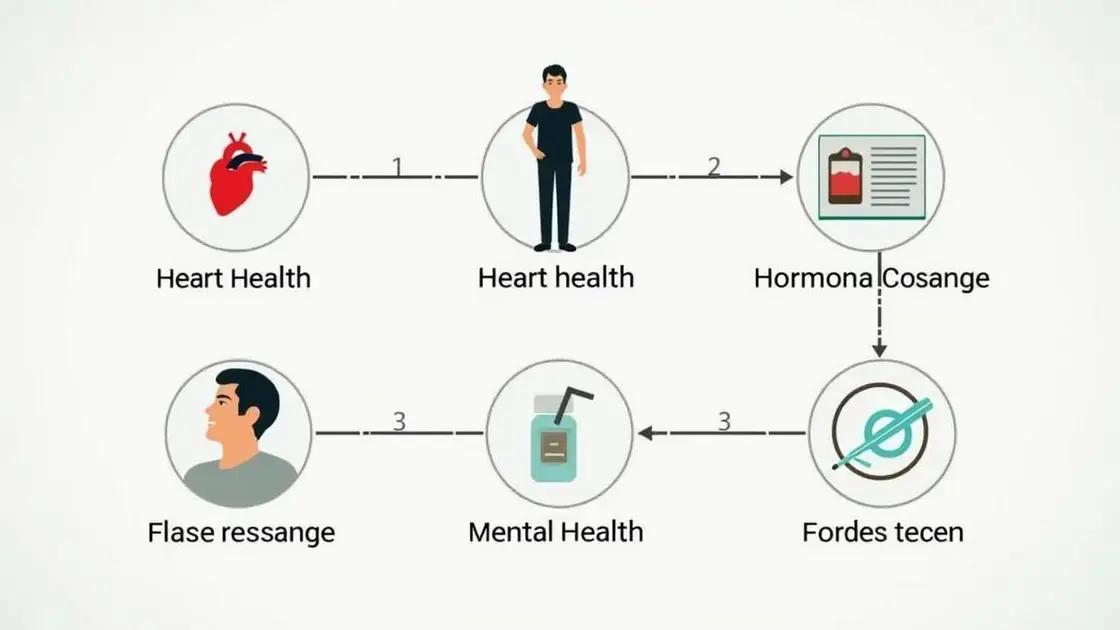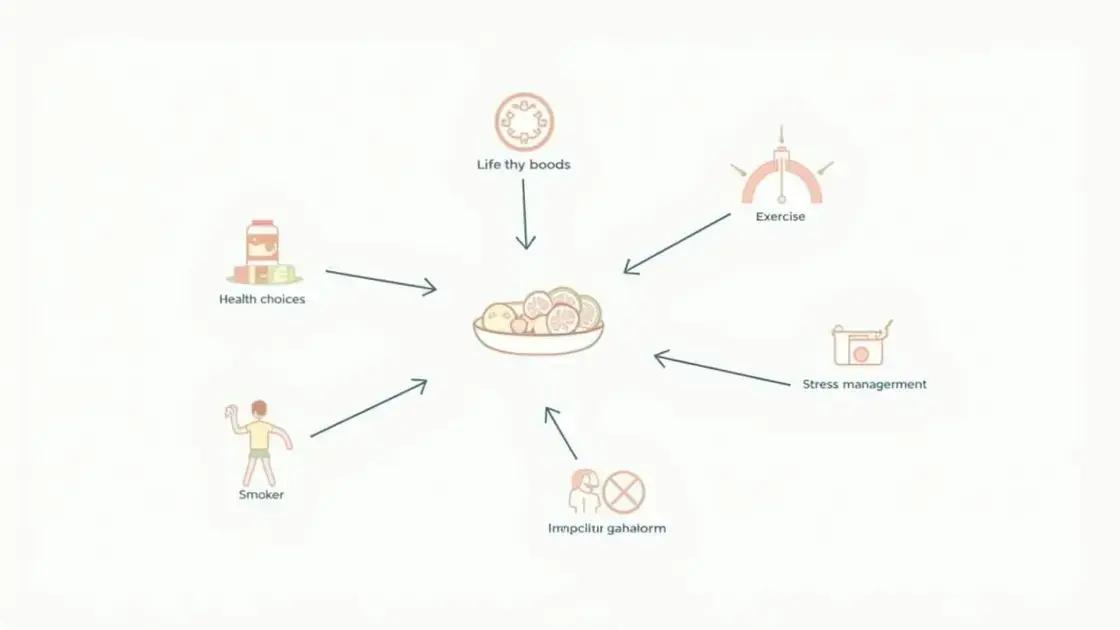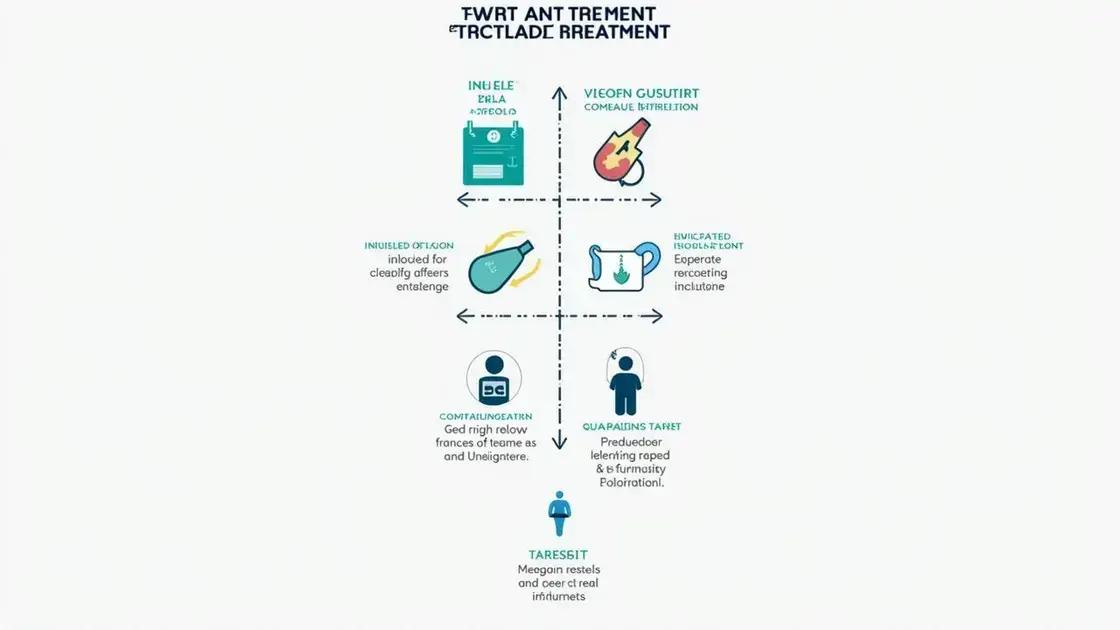Erectile dysfunction (ED) can often be reversible with the right lifestyle changes, medical treatments, and psychological support. Understanding the common causes, such as physical health issues and emotional factors, is crucial for effective management. Consult a healthcare provider if you experience persistent symptoms, significant emotional distress, or other related health concerns.
Is erectile dysfunction reversible? Many men experience this condition, but few understand the options available for treatment. From lifestyle changes to medical interventions, the journey to regaining confidence and intimacy can be complex. In this article, we will explore the various causes of erectile dysfunction, potential solutions, and when it’s necessary to consult a healthcare professional. Join us as we delve into this important topic that affects so many.
Understanding Erectile Dysfunction

Erectile dysfunction (ED) is a common condition that affects many men at some point in their lives. It occurs when a man cannot achieve or maintain an erection sufficient for satisfactory sexual performance. This can be caused by a variety of physical and psychological factors.
How Common Is Erectile Dysfunction?
Many studies indicate that ED is quite prevalent, particularly in older men. It is estimated that approximately 30 million men in the United States experience some form of erectile dysfunction.
Physical Causes of Erectile Dysfunction
There are several physical causes of ED, including:
- Diabetes: High blood sugar levels can damage nerves and blood vessels, leading to ED.
- Heart disease: Poor circulation and heart problems can prevent adequate blood flow to the penis.
- Obesity: Being overweight may also contribute to reduced testosterone levels and complications affecting erections.
- Hormonal changes: Low testosterone levels can lead to erectile dysfunction.
- Medications: Certain medications may have side effects that impact sexual function.
Psychological Causes of Erectile Dysfunction
Psychological factors can also play a significant role in ED. These may include:
- Anxiety: Stress and anxiety about sexual performance can disrupt the mental pathways needed for an erection.
- Depression: Mental health issues can affect libido and lead to erectile dysfunction.
- Relationship problems: Issues with your partner can contribute to sexual performance anxiety.
Understanding the various causes of erectile dysfunction is crucial in determining the appropriate approach for managing or treating the condition.
Common Causes of Erectile Dysfunction

Common causes of erectile dysfunction can be grouped into physical and psychological factors. Understanding these causes can help men find the right treatment.
Physical Causes
Physical issues are often the reason for erectile dysfunction. Some common physical causes include:
- Heart Disease: Conditions that affect blood flow can prevent an erection.
- Diabetes: High glucose levels can damage nerves, impacting erections.
- High Blood Pressure: This can restrict blood flow to the penis, leading to ED.
- Obesity: Being overweight can lead to hormonal imbalances and blood flow issues.
- Hormonal Changes: Low testosterone levels can decrease sexual desire and function.
- Medications: Some prescriptions and over-the-counter drugs can have side effects that affect sexual performance.
Psychological Causes
Besides physical causes, psychological factors can also contribute to erectile dysfunction. These might include:
- Stress: Worries about work, finances, or personal issues can impact sexual performance.
- Anxiety: Performance anxiety or fear of intimacy can lead to ED.
- Depression: Mental health issues can reduce interest in sex, contributing to erectile dysfunction.
- Relationship Problems: Poor communication or unresolved conflicts with a partner can lead to feelings of disconnect that affect sexual health.
Identifying the root cause of erectile dysfunction is crucial for effective treatment. By addressing either physical or psychological factors, many can manage this condition more effectively.
Can Lifestyle Changes Help?

Lifestyle changes can play a significant role in improving erectile dysfunction (ED). Many men have found that adopting healthier habits can boost their sexual health.
Improving Diet
A balanced diet can positively affect ED. Foods rich in antioxidants, such as fruits and vegetables, support blood circulation. Incorporating whole grains, lean proteins, and healthy fats can also benefit overall health.
Regular Exercise
Staying active is crucial for maintaining a healthy weight and reducing the risk of diseases that can lead to erectile dysfunction. Regular exercise improves blood flow and boosts testosterone levels. Aim for at least 30 minutes of moderate exercise most days of the week. Activities such as walking, swimming, or cycling can be very effective.
Limiting Alcohol
Excessive alcohol consumption can lead to erectile dysfunction. Limiting alcohol intake to moderate levels can help improve sexual function. For men, this typically means up to two drinks a day.
Quit Smoking
Smoking greatly affects blood flow and can contribute to erectile dysfunction. Quitting smoking can improve overall cardiovascular health and, in many cases, erectile function can return.
Managing Stress
Stress and anxiety can negatively impact sexual performance. Practicing relaxation techniques such as yoga, meditation, or deep breathing can reduce stress levels. Finding activities that you enjoy and spending time with loved ones can also help.
Making these lifestyle changes can have a positive effect on erectile dysfunction. Men who incorporate healthy habits may experience improvements in their sexual health over time.
Treatment Options for Erectile Dysfunction

When considering treatment options for erectile dysfunction, there are several approaches that can help improve sexual health. These treatments vary based on the underlying cause of ED.
Medications
One of the most common treatments for erectile dysfunction is medication. Commonly prescribed medications include:
- Phosphodiesterase type 5 inhibitors (PDE5i): These drugs, such as Viagra, Cialis, and Levitra, work by relaxing blood vessels and improving blood flow to the penis.
- Testosterone Replacement Therapy: If low testosterone levels are causing ED, hormone therapy may be suggested.
Vacuum Erection Devices
Vacuum pumps can also be effective. These devices create a vacuum around the penis, drawing blood into the penis and helping it to become erect. A constriction ring is placed at the base of the penis to maintain the erection.
Pessary
A pessary is a device that can be inserted into the vagina to help women achieve sexual satisfaction. It may work in parallel with treatments for men.
Injections
For some men, an injection directly into the penis may be effective. Medications such as alprostadil can be injected to stimulate an erection.
Surgery
In cases where other treatments do not work, surgical options are available. Procedures may involve:
- Implanting a penile prosthesis.
- Bypassing blocked arteries to enhance blood flow to the penis.
Counseling and Therapy
Since psychological factors can contribute to erectile dysfunction, counseling or therapy can be beneficial. Speaking with a mental health professional can help address issues like anxiety, depression, or relationship problems.
Choosing the right treatment often depends on consulting a healthcare provider. They can help determine the most effective approach based on individual circumstances.
When to Seek Professional Help

Knowing when to seek professional help for erectile dysfunction (ED) is essential for effective management. If you are experiencing persistent issues, it may be time to consult a healthcare provider.
Persistent Symptoms
If you have difficulty achieving or maintaining an erection that lasts long enough for sexual intercourse on a regular basis, it is advisable to see a doctor. Occasional difficulty may not be a cause for concern, but frequent problems can indicate an underlying issue.
Accompanying Health Issues
If you suffer from other health conditions such as diabetes, heart disease, or high blood pressure, you should consult with a healthcare provider. These conditions can contribute to ED and require careful management.
Emotional Distress
Experiencing anxiety, depression, or stress related to sexual performance is another reason to seek help. Mental health plays a vital role in sexual health, and talking to a mental health professional may be beneficial.
Changes in Libido
If you notice a marked decrease in sexual desire (libido), this can signal a problem that needs attention. Changes in your libido can be linked to hormonal imbalances, medication side effects, or emotional factors.
Adverse Effects from Other Treatments
If you have started a new treatment or medication and notice worsening symptoms of erectile dysfunction, it’s important to discuss this with your healthcare provider. They can help determine if the treatment is causing the issues.
Consulting a professional can help you find the right diagnosis and treatment. Don’t hesitate to seek help when you need it; addressing erectile dysfunction early can lead to better outcomes.
In Summary: Navigating Erectile Dysfunction
Erectile dysfunction (ED) affects many men and can have various causes, ranging from physical health issues to emotional factors.
Understanding the common causes, including medical conditions and lifestyle choices, is essential for determining the best course of action. Making lifestyle changes such as improving diet, exercising regularly, and managing stress can have significant benefits.
There are numerous treatment options available, including medications, devices, and therapy, that can help men regain confidence and improve their sexual health.
Importantly, knowing when to seek professional help is crucial. If symptoms persist, or if there are accompanying health issues, consulting a healthcare provider can lead to effective management and treatment.
Addressing erectile dysfunction can greatly enhance not just sexual health, but overall well-being and quality of life for men and their partners.
FAQ – Frequently Asked Questions about Erectile Dysfunction
What is erectile dysfunction?
Erectile dysfunction (ED) is the inability to achieve or maintain an erection sufficient for satisfactory sexual performance.
What are the common causes of erectile dysfunction?
Common causes include physical health issues like diabetes, heart disease, obesity, and psychological factors such as stress, anxiety, and depression.
Can lifestyle changes help with erectile dysfunction?
Yes, lifestyle changes such as adopting a healthy diet, exercising regularly, avoiding smoking, and managing stress can significantly improve erectile function.
What treatment options are available for erectile dysfunction?
Treatment options include medications, vacuum erection devices, injections, surgical procedures, and counseling or therapy for psychological issues.
When should I seek professional help for erectile dysfunction?
You should seek help if you experience persistent erectile dysfunction, have accompanying health issues, significant emotional distress, or changes in libido.
Is erectile dysfunction reversible?
In many cases, erectile dysfunction can be reversible through lifestyle changes, treatment options, and addressing underlying health conditions.












